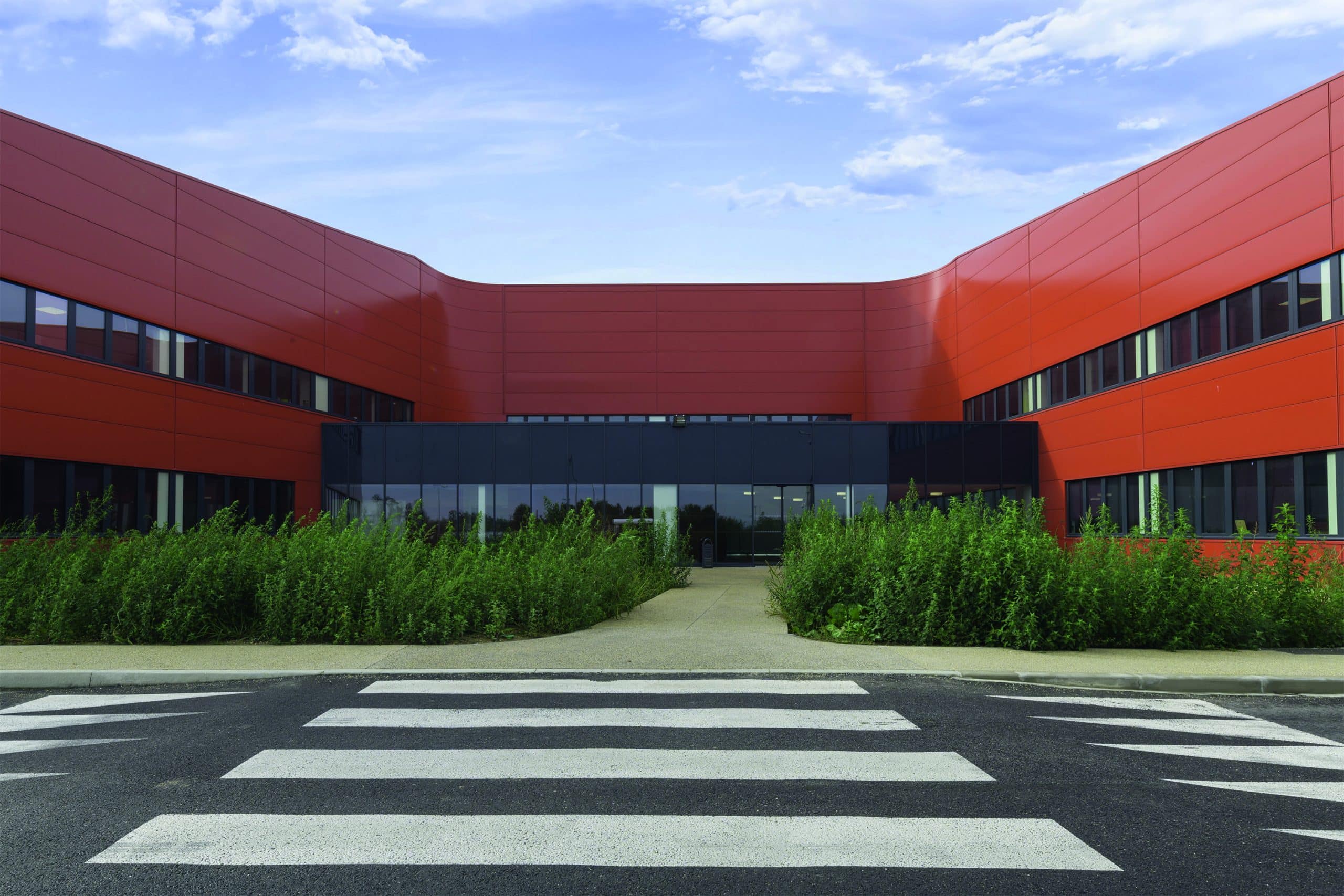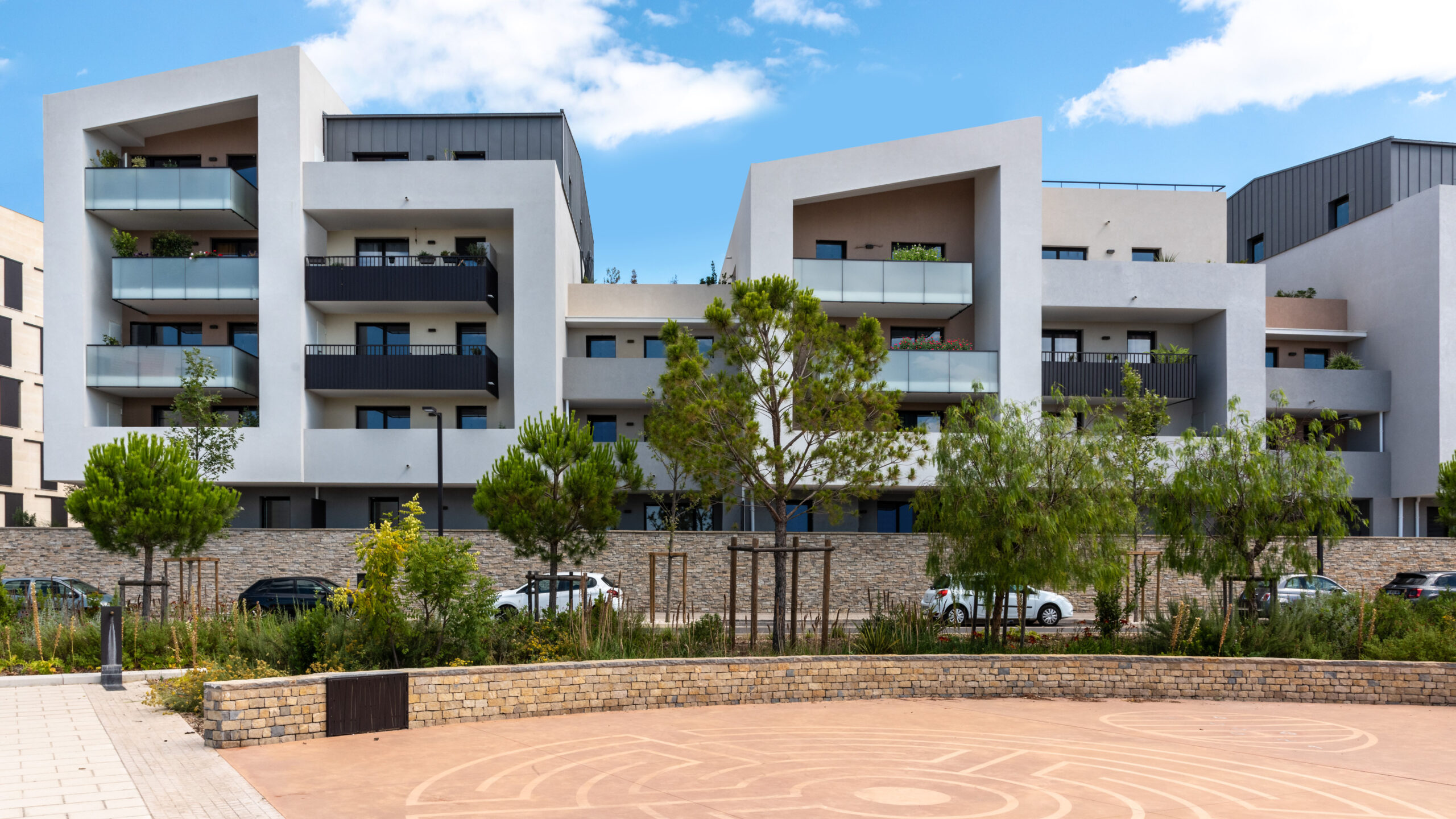
Act for the environment
We deploy cost-effective
and warm real estate
in all territories
We are creating a new era of real estate, that of sobriety. Real estate construction and its use over time impact the environment. Responsibility is first and foremost common sense. We are landlubbers. Building right means providing an expert response, adjusted and sober in terms of resource consumption.
33 environmental requirements
Source: Environmental Specifications and Procedures Manual
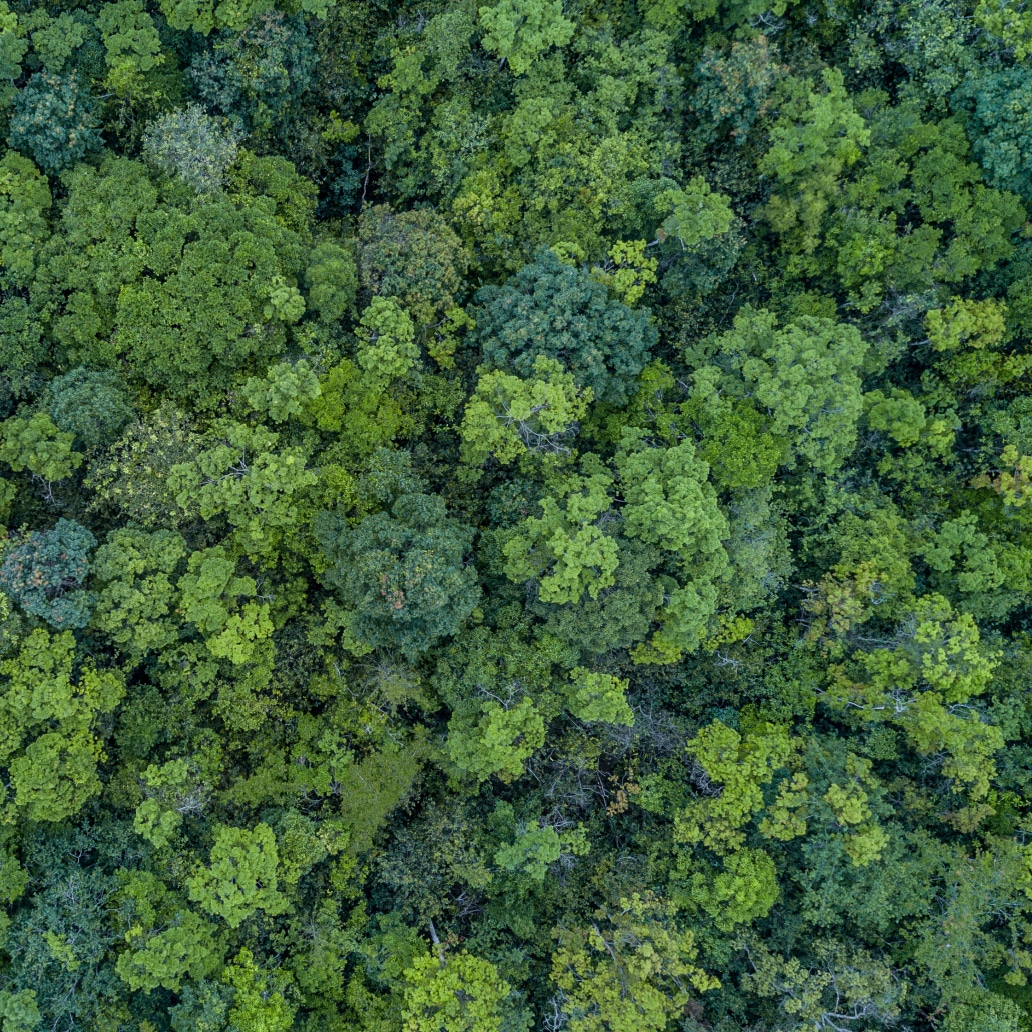
Pollution
Prevention

Biodiversity and Ecosystems

Water Conservation
Through the design of its buildings, Kaufman & Broad has a role to play in saving water consumption.

Adaptation to climate change
For Kaufman & Broad, making a concrete and operational commitment to building sustainable buildings means implementing standardized and controlled processes.

Carbon – Climate Change Mitigation
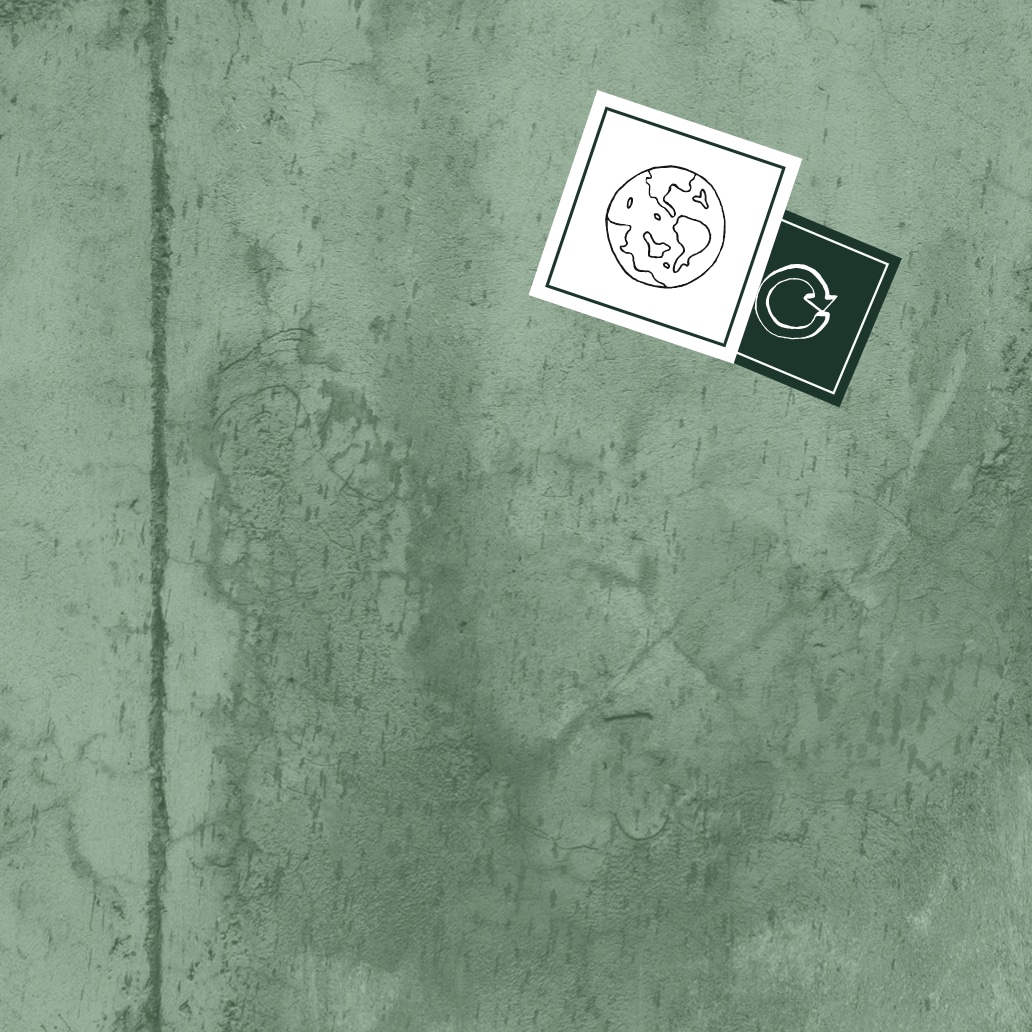
Circular Economy

Comfort and awareness of buyers and users

Pollution
Prevention
Kaufman & Broad is committed to :
- Generalize the K&B Low Nuisance Worksite Charter to all its worksites
- Use only products with an indoor COV rating of A

Biodiversity and Ecosystems
Kaufman & Broad is committed to:
- Generalize porous devices for outdoor parking lots
- Systematically use certified wood
- Zero net tree removal on K&B projects
- Generalize green spaces on all programs
- Use low-allergenic and adapted species
- Detail the maintenance program for green spaces
- Generalize light pollution reduction devices

Water Conservation
Kaufman & Broad is committed to:
- Generalize the use of water-saving equipment in buildings
- Generalize the use of hydro-economical solutions for the watering and maintenance of outdoor spaces

Adaptation to climate change
Kaufman & Broad is committed to:
- Generalize the study of climate risks on the grounds
- Decline the “Design with Nature” principles on each project
- Generalize the use of light-colored coatings for roofs and facades

Carbon – Climate Change Mitigation
Kaufman & Broad is committed to:
- Generalize life cycle analysis on all projects to minimize the carbon footprint
- Minimize the use of metal cladding
- Generalize LED lamps/bulbs
- Use concrete with a carbon weight <220 KgCO2eq/m3
- Generalize the energy optimization of elevators
- Generalize the tests of air tightness and thermal integrity of buildings (> 5000 m² floor area)

Circular Economy
Kaufman & Broad is committed to:
- Generalize the study of potential on land including buildings of more than 1,000 m² floor area
- Generalize the waste diagnosis on significant demolitions and renovations of more than 1,000 m² floor area
- Generalize the reuse of soil on site
- Valuation of 70% (by mass) of construction waste

Comfort and awareness of buyers and users
Kaufman & Broad is committed to:
- Develop and systematically distribute a booklet to raise awareness among buyers of sustainable real estate practices
- Encourage pedestrian walkways in buildings
- Designing spaces for telecommuting, which has become systematic
- Generalize a private outdoor space
- Generalize the installation of a functional, equipped and secure bicycle room in all programs
Case studies
Fulfilling our commitments
Impact
100% of the commercial real estate projects launched aim for double or even triple certification

97% of housing programs in 2021 were launched in an urban unit
400 000 m² in brownfield renovation projects planned
100% of commercial programs are less than 1 kilometer from public transportation
Labels and Certifications
Our commitment is also the certification of our achievements by independent and recognized organizations.
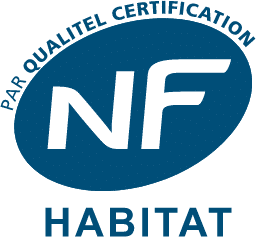
NF Habitat is the reference certification for housing quality, controlled by an independent organization.

The Haute Qualité Environnementale label recognizes the measures taken to reduce the environmental impact of the construction, management and maintenance of real estate projects.

created in 2009 by IRICE (Institut de Recherche et d’Innovation pour le Climat et l’Écologie), Effinature certification applies to the construction sector, from the building to the city.

Created in 2013, the BiodiverCity® label rates and displays the performance of real estate projects in terms of their consideration of biodiversity.
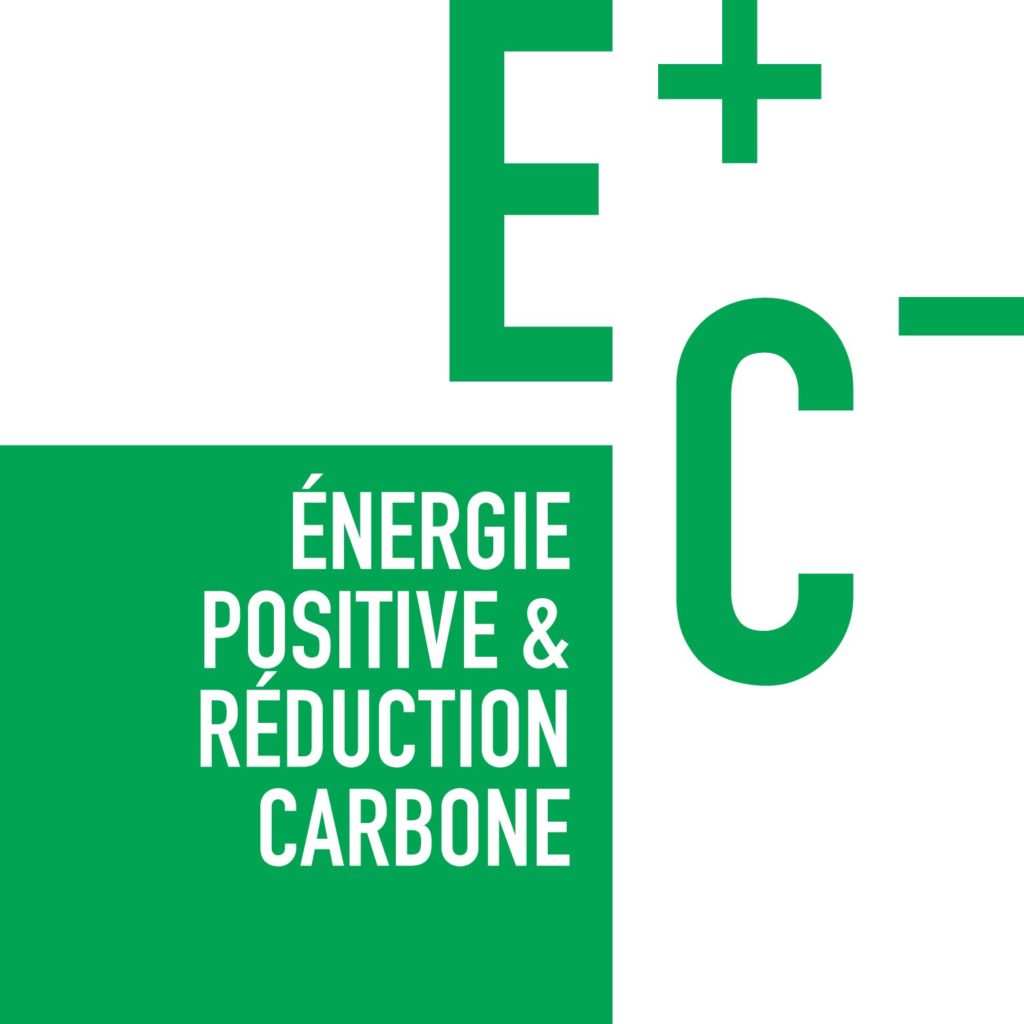
The Energie Positive et Réduction Carbone label (E+C-) supports the environmental performance and carbon impact reduction of the building over its life cycle.

Breeam is a reference standard in terms of sustainable construction, which allows to value the commitment of property owners on the environmental level.
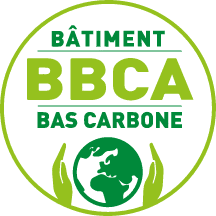
The BBCA label attests to the exemplary nature of a building in terms of its carbon footprint (construction, operation, storage, circular economy).
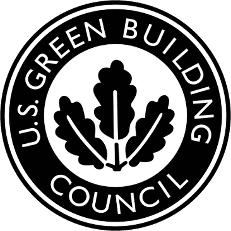
Created in the early 2000s, this label allows for the standardization of buildings with a high environmental quality.

